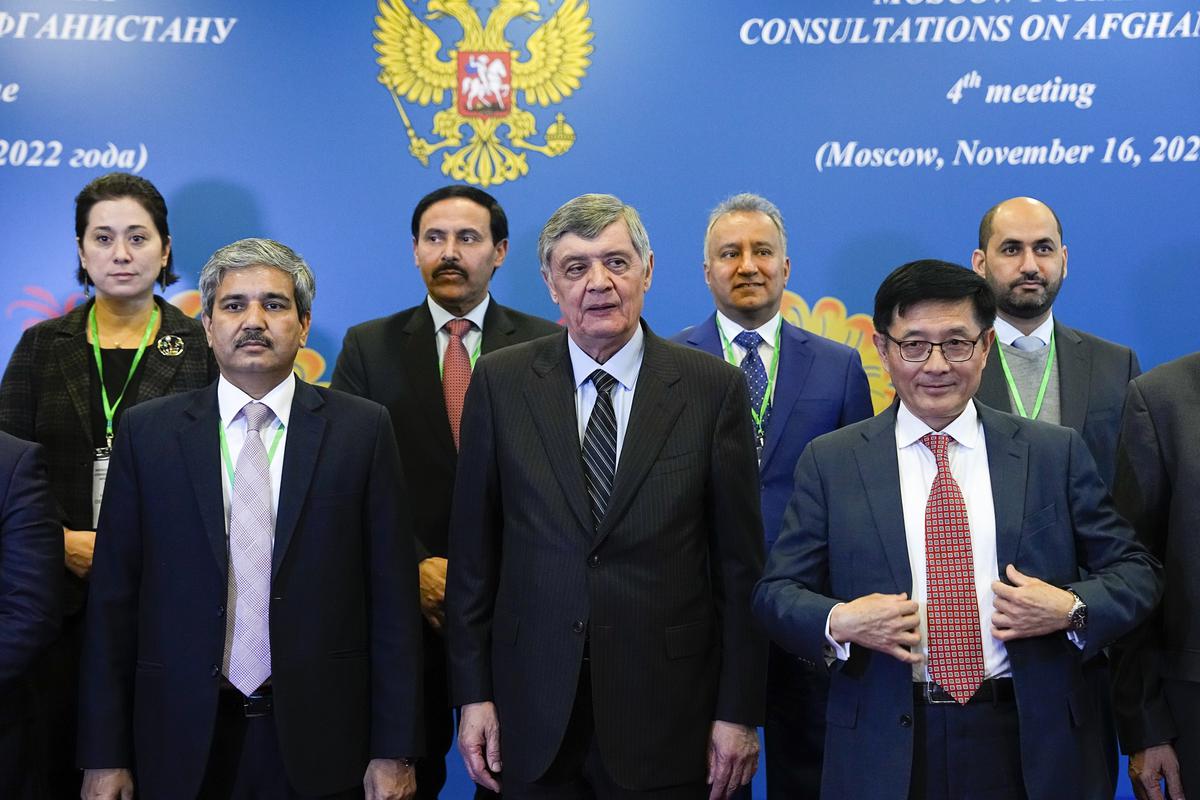
Moscow format calls for ‘political reconciliation’ in Afghanistan
The Hindu
The Moscow Format of Consultations on Afghanistan called for an to all terror infrastructure in Afghanistan even as it opposed military facilites of ‘third countries’.
NEW DELH
The Moscow Format of Consultations on Afghanistan held in the Russian capital on Wednesday, November 16, 2022, called for respect for all Afghan ethnic groups and minorities in a bid to create national reconciliation in the war torn country. A Joint Statement issued after the meeting stressed upon ending all terrorist infrastructure in Afghanistan and said placing of military infrastructure facilities of “third countries” in Afghanistan “and in adjacent states is unacceptable”.
“The strengthening of Afghan authorities’ efforts to ensure the basic rights and freedoms of the population were noted as important. The sides also expressed their support for the fundamental rights of all ethnic groups, including minorities, women and children, providing equal access to justice and education respectively,” stated the Joint Statement. The Russian hosts, presented a White Book on the civilian losses in Afghanistan due to the actions of the NATO forces during the past two decades.
The representatives at the talks also called for “complete unfreezing” of Afghanistan’s assets by Washington. The United States has frozen at least $9.5 billion of the Afghan Central Bank in the aftermath of Taliban takeover of 16 August 2021. The Taliban regime has called for unfreezing of the fund but it has remained unrecognised by major countries so far creating problems in its international engagements.
Participating countries in the talks that included Russia, India, China, Pakistan, Iran, Turkmenistan, Kazakhstan, Uzbekistan, Kyrgyzstan and Tajikistan called upon the Taliban setup to “fulfil its commitments to eradicate terrorism and drug trafficking” that continue to emanate from the Afghan territory. The grouping also discussed methods to stop poppy cultivation with innovative methods through “crop substitution programs”.
The representatives and special envoys underscored the importance of forming a “truly inclusive government in Afghanistan, reflecting the interests of all major ethno-political groups of the country.” The Moscow format commended the regional neighbours of Afghanistan who have hosted Afghan refugees and called for “the importance of a safe, dignified, time-bound and well-resourced repatriation of refugees back to Afghanistan”.
The call for national reconciliation and recognising rights of ethnic and religious minorities and women reflect the content of “intra-Afghan” dialogue that was also part of the 2020 Doha agreement between the United States and the Taliban. The intra-Afghan dialogue however was left incomplete when the Taliban launched a military campaign immediately after the Doha Agreement that ultimately led to the collapse of the Ashraf Ghani government as the U.S. forces withdrew.













